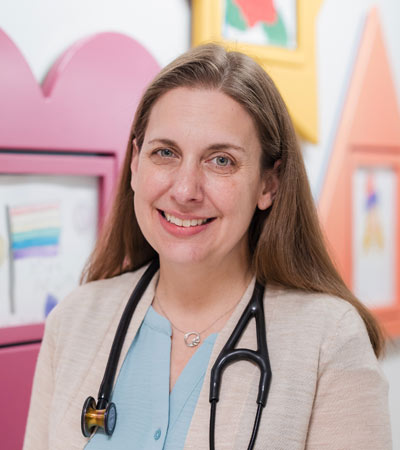
- Rebecca Ahrens-Nicklas
- Children’s Hospital of Philadelphia and University of Pennsylvania, USA
- More info
-
Dr. Rebecca Ahrens-Nicklas is an Assistant Professor of Pediatrics in the Division of Human Genetics and Metabolism at The Children’s Hospital of Philadelphia (CHOP) and the University of Pennsylvania. She also directs the Gene Therapy for Inherited Metabolic Diseases Frontier Program at CHOP. After completing MD/PhD training in Physiology and Biophysics, she pursued clinical training in Pediatrics, Clinical Genetics, and Metabolism. She cares for children with rare diseases, with a special interest in neurometabolic disorders. Her research laboratory focuses both on gene discovery and elucidating the pathologic mechanisms underlying rare diseases to guide therapy development. She also partners with advocacy groups to conduct natural history and biomarker studies to promote clinical trial readiness for these rare conditions.
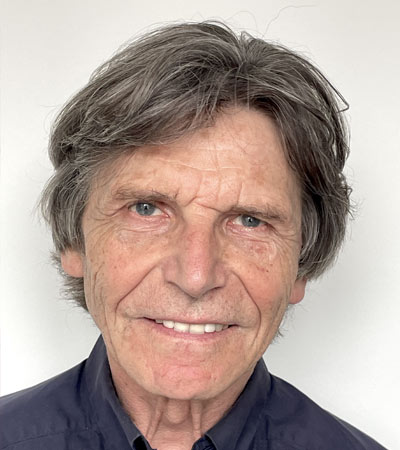
- Thomas Braulke
- University Medical Center Hamburg-Eppendorf; Institute of Osteology & Biomechanics; Cell Biology of Rare Diseases, Germany
- More info
-
Thomas Braulke studied Biochemistry, obtained his PhD in Neurochemistry and worked as postdoctoral fellow and group leader on biogenesis of lysosomes and lysosomal storage disorders with Kurt von Figura at the University of Goettingen, Germany. In 1999 he became a professor of Biochemistry at the University Medical Center in Hamburg, established a new Department for Biochemistry at the Children’s Hospital and joined the Department of Osteology & Biomechanics in Hamburg in 2019. His group has identified the gene encoding the phosphotransferase catalysing the key step in the formation of the mannose 6-phosphate targeting signal for lysosomal enzymes. Mutations in this gene cause mucolipidosis II (MLII; I-cell disease) and MLIIIalpha/beta. In the group of Dr. Braulke a mouse model for MLII was generated which phenocopies the key features of the human disease and whose analysis provided new insights into pathogenic alteration of the brain, skeleton, kidney and the immune system. Furthermore, his group identified the protease that cleaves and activates the precursor protein of the phosphotransferase and very recently the regulatory proteins, LYSET, that functions in the stabilization, and the Golgi phosphoproteins GOLPH3/3L which control the location of the phosphotransferase and LYSET within the Golgi compartment. The loss of LYSET leads to a novel MLII-like disease.
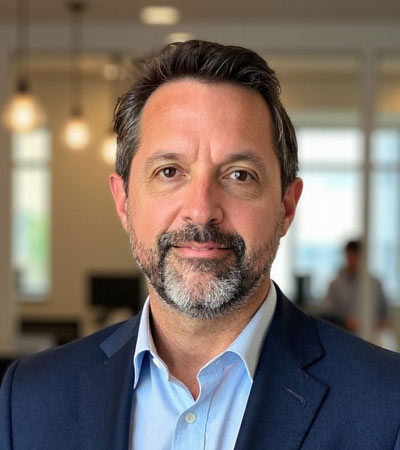
- Juan Francisco Cabello
- INTA, University of Chile, Chile
- More info
-
Dr. Juan Francisco Cabello is a pediatric neurologist with over two decades of leadership in the care, teaching, and research of inborn errors of metabolism across Latin America. He currently holds academic appointments as Associate Professor of Pediatric Neurology at the Universidad de Chile and Honorary Professor at the Universidad de Valparaíso. Since 2024, he also serves as Adjunct Faculty in the Department of Neurology at Boston Children’s Hospital, where he lectures in the Pediatric Neurology Residency and participates in collaborative global health initiatives.
Dr. Cabello trained in Chile and completed visiting fellowships at Boston Children’s Hospital in genetics, metabolism, and neuroradiology. He directed the Pediatric Neurology Residency Program at Universidad de Valparaíso for over 15 years and was Medical Director of CEDINTA, the Chilean national referral center for metabolic diseases. His work has shaped national policies through his ongoing roles in the Chilean Ministry of Health, including commissions on rare diseases, metabolic screening, and access to high-cost treatments.
Dr. Cabello’s academic contributions include over 30 peer-reviewed publications and multiple invited international lectures. In parallel, as Senior Vice President for Latin America at Uncommon Cures, a global rare disease company, he has advanced efforts to bridge innovation with equity by supporting access to diagnosis and treatment in underserved settings.
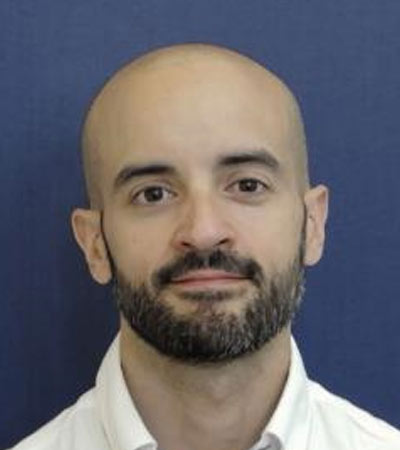
- Isaac Canals
- University of Zurich - Kinderspital Zürich, Switzerland
- More info
-
Stem cell biologist specialized in generating human pluripotent stem cell-derived models of neurodegenerative lysosomal storage disorders affecting children to better understand disease mechanisms and develop novel therapeutic approaches.
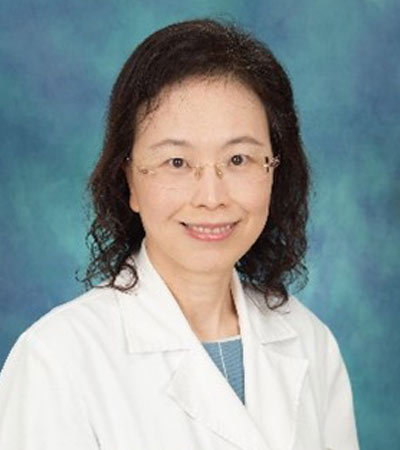
- Yin-Hsiu Chien
- National Taiwan University Hospital, Taiwan
- More info
-
Dr. Yin-Hsiu Chien is Clinical Professor at the Department of Pediatrics at the National Taiwan University, Taiwan, and Attending Physician of the Department of Medical Genetics and Pediatrics at the National Taiwan University Hospital. She undertook pediatric residency training, and completed her fellowship in Pediatric Allergy, Immunology & Rheumatology before then completing her fellowship in Medical Genetics and Metabolism, all at National Taiwan University Hospital. She participates in research on Pompe disease, focusing especially the early diagnosis and the improvement in the treatment. She is the director of the newborn screening center at National Taiwan University Hospital, which routinely screens around one third of newborn infants in Taiwan.
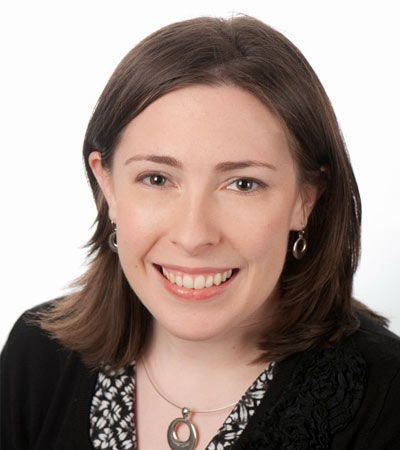
- Stacy Croteau
- Boston Children's Hospital, USA
- More info
-
Dr. Stacy Croteau is a pediatric hematologist and clinical investigator at Boston Children’s Hospital and an Assistant Professor of Pediatrics at Harvard Medical School, where she specializes in bleeding and clotting disorders. She received her medical degree from Brown Medical School and her master of medical science degree from Brown University. She completed her pediatric residency training at Boston Children’s Hospital and pediatric hematology/oncology fellowship at Boston Children’s Hospital/Dana-Farber Cancer Institute.
Dr. Croteau is the head of the Hemophilia/VWD program at Boston Children’s Hospital and medical director for the Boston Bleeding Disorders Center serving Boston Children’s Hospital and Brigham and Women’s Hospital. She also serves as a Region I (New England) medical director for the national network of U.S hemophilia treatment centers (HTCs) for the Centers of Disease Control bleeding disorders surveillance project. Dr. Croteau serves as the principal investigator for several industry-sponsored and investigator-initiated clinical trials on hemophilia and other bleeding and clotting disorders. She has published numerous original research and review articles in peer-reviewed journals and presents nationally and internationally on a broad spectrum of bleeding disorder topics for both medical professionals as well as the bleeding disorders community.
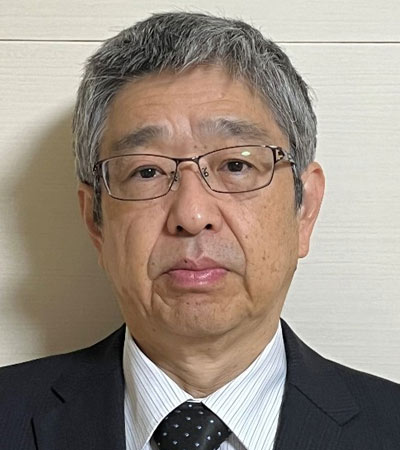
- Takumi Era
- Department of Cell Modulation, Institute of Molecular Embryology and Genetics, Kumamoto University, Japan
- More info
1987 M.D. Kumamoto University of School of Medicine, Kumamoto, Japan. 1993 Ph.D., Internal Medicine, Kumamoto University School of Medicine 1995-1997 Reseach associate, Osaka University, Osaka, Japan. 1998-2000 Postdoc. Howard Hughes Medical Institute, UCLA, USA 2000-2007 Reseacher, Center for Developmental Biology, RIKEN, Kobe, Japan 2008- Professor, Institute of Embryology and Genetics, Kumamoto University, Japan
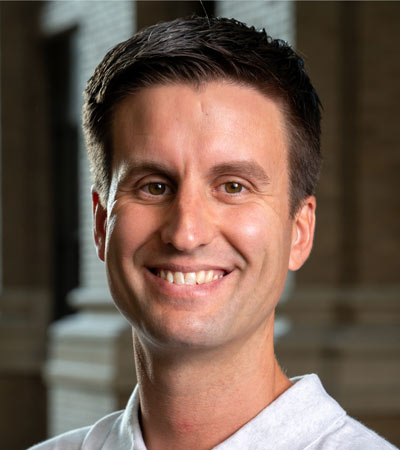
- Patrick Forny
- Washington University School of Medicine in St. Louis, USA
- More info
-
Patrick Forny, MD, PhD, is a physician-scientist dedicated to advancing the understanding and treatment of rare metabolic diseases. After earning his medical degree from the University of Zurich, Switzerland, he pursued a dual pathway in academic research and clinical training in pediatric metabolic medicine.
His doctoral research at the Universities of Zurich and Oxford, UK, focused on the biochemical and genetic characterization of methylmalonic aciduria. Clinically, he trained in both general and metabolic pediatrics at leading institutions, including the University Children’s Hospital Zurich and Great Ormond Street Hospital for Children in London, UK.
Currently, Patrick Forny is an EMBO and SNSF research fellow at Washington University School of Medicine in St. Louis, USA, where he explores the complex landscape of mitochondrial biology using integrative systems biochemistry. Bridging patient-centered insight with state-of-the-art science, his work aims to uncover novel mechanisms and therapeutic strategies for mitochondrial disease.
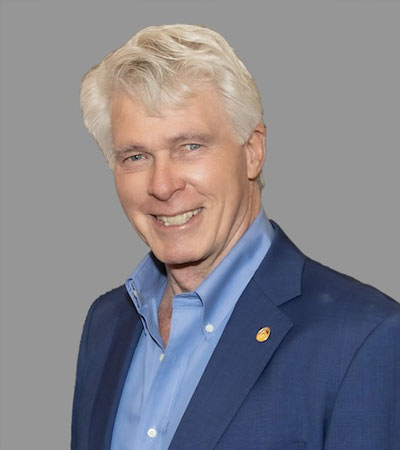
- Hudson H. Freeze
- Sanford Burnham Prebys Medical Discovery Institute, USA
- More info
-
Hudson H. Freeze, PhD, is a Professor of Glycobiology and Director of the Human Genetics Program and Sanford Children’s Health Research Center at Sanford Burnham Prebys Medical Discovery Institute (SBP) in La Jolla, CA, USA. He has worked on rare diseases for over 46 years, the last 28 focused on defining, validating, and understanding mechanisms of multiple Congenital Disorders of Glycosylation (CDG) now numbering over 200. He collaborates closely with physicians, families and their support organizations. He has published over 350 scientific articles, the first describing the extreme thermophile, Thermus aquaticus (Taq), for which he won the 2013 Golden Goose Award from the American Academy for the Advancement of Science (AAAS).
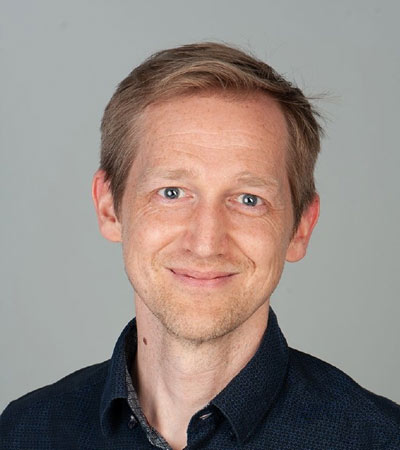
- Sean Froese
- University Children’s Hospital Zurich, Switzerland
- More info
-
Sean Froese, PhD, is the Head of Research in the Division of Metabolism at the University Children’s Hospital in Zurich, Switzerland. He obtained a PhD in Biochemistry and Molecular Biology at the University of Calgary, Canada, and was a postdoctoral fellow at the University of Oxford, UK. He now leads a research group focused on inherited vitamin responsive disorders at the University Children’s Hospital Zurich, Switzerland.
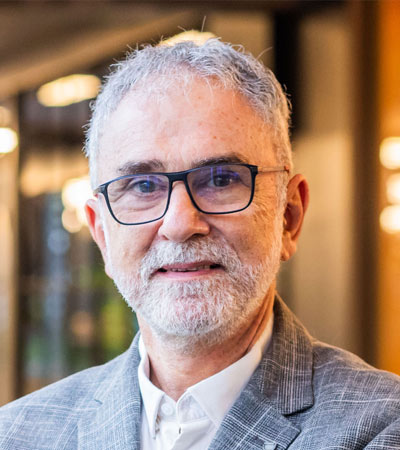
- Roberto Giugliani
- UFRGS, HCPA, DASA, CASA DOS RAROS, Brazil
- More info
-
Roberto Giugliani is medical geneticist, Full Professor of Genetics at the Federal University of Rio Grande do Sul (UFRGS), and Executive Director of Casa dos Raros (CDR), in Porto Alegre, Brazil. He is Founder and active member the Medical Genetics Service of Hospital de Clinicas of Porto Alegre (HCPA), and President of the Genetics for All Institute (IGPT). He is also Vice-President of the Latin American Society of Inborn Errors of Metabolism and Neonatal Screening (SLEIMPN), Coordinator of the Brazilian National Institute of Multiomics Applied to Precision Health (IMASP), Editor-in-Chief of the Journal of Inborn Errors of Metabolism and Screening (JIEMS), Director of the Latin American School of Human and Medical Genetics (ELAG), and member of the Brazilian Academy of Sciences (ABC) and of the Rio Grande do Sul Academy of Medicine (ASRM). He is former Director of the WHO Collaborating Center for the Development of Medical Genetics Services in Latin America, former Coordinator of the Brazilian National Institute of Population Medical Genetics (INAGEMP), and past President of the Latin American Network of Human Genetics (RELAGH) and of the Brazilian Society of Medical Genetics and Genomics (SBGM). Prof. Giugliani’s main scientific interests are concentrated in screening, diagnosis, and treatment of inborn errors of metabolism, particularly the lysosomal diseases, having supervised over 100 MSc and PhD graduates, and being author/co-author of over 600 papers listed in PubMed.
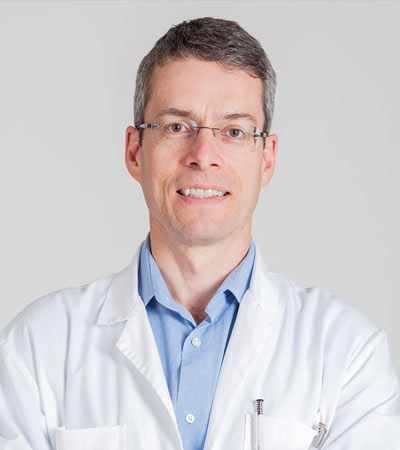
- Johannes Häberle
- University Children's Hospital Zurich, Switzerland
- More info
-
Johannes Häberle is an Adjunct Professor of Pediatrics at the University of Zurich working as a Consultant and as Head of the Metabolic Laboratory at the Division of Metabolism in the University Children’s Hospital Zürich. His research focuses on urea cycle disorders (UCDs), specifically on innovative genetic and functional flux analysis and the development of novel therapies. He is chairman of the European working group that produced the 2019 "Urea cycle disorders diagnosis and treatment guidelines". Recently, he became Director of the "UCD Translational Center Universität Zürich - Citrin Foundation". His work is supported by the Swiss National Science Foundation, the University of Zurich’s URPP ITINERARE program and Citrin Foundation.

- Marc Kopel Hellerstein
- University of California, Berkeley and University of California, USA
- More info
-
Dr. Hellerstein is Professor of Human Nutrition at the University of California, Berkeley, where he occupies an Endowed Chair (Dr. Robert C. and Veronica Atkins Chair). He is also Professor of Endocrinology, Metabolism and Nutrition in the Department of Medicine at the University of California at San Francisco, where he ran the diabetes clinic at SF General Hospital for 25 years. Dr. Hellerstein’s medical training was at Yale Medical School and he completed a PhD at the Massachusetts Institute of Technology, in addition to medical training in Internal Medicine and Endocrinology and Metabolism.
Dr. Hellerstein’s major research interest has been the measurement in vivo of metabolic fluxes through pathways critical to health and disease, as biomarkers for understanding metabolic control and its disorders, including applications in drug development and clinical diagnostics. This research has resulted in over 330 publications, 80 issued patents and participation on many editorial boards and as an advisor to NASA. Dr. Hellerstein co-founded a medical diagnostics and drug development biotech company, KineMed, Inc., in 2001 and a muscle diagnostic company, Myo Corps, Inc. in 2023.
By combining powerful mass spectrometric technology with insights into the mathematical footprint of metabolic flux in complex networks, his group has quantified in humans many metabolic processes that could not previously be studied. Methodologic advances from the Hellerstein lab include Mass Isotopomer Distribution Analysis (MIDA), the "equation for polymerization biosynthesis"; heavy water labeling for protein synthesis, including Dynamic Proteomics for measuring flux rates of proteins across the proteome; cell proliferation and turnover rates by metabolic labeling of newly replicated DNA with heavy water or glucose; non-invasive probes of intracellular intermediary metabolic fluxes, or "virtual biopsies", including hepatic fibrogenesis, muscle protein synthesis and brain myelination rates; muscle mass from a spot urine sample; and flux metabolomics using combinatorial measurements to infer global fluxes from heavy water labeling.
This work directly addresses the major challenge of the next generation of biomedical research: translating our advanced understanding of molecular components (reductionist knowledge) into the ability to control and predict functional outcomes in vivo (integrated understanding) in humans. His work continues to look for ways that dynamic systems measurements can have a fundamental impact on basic biology and human health. By measuring intracellular metabolic processes in vivo that potentially play a causal role in the pathogenesis or treatment of disease and that were not previously able to be studied, these techniques can answer questions where the hard clinical outcomes take years or decades to become apparent. This work at its core has always been centered on translational medicine by creating minimally invasive techniques for monitoring disease-causal pathways in humans.
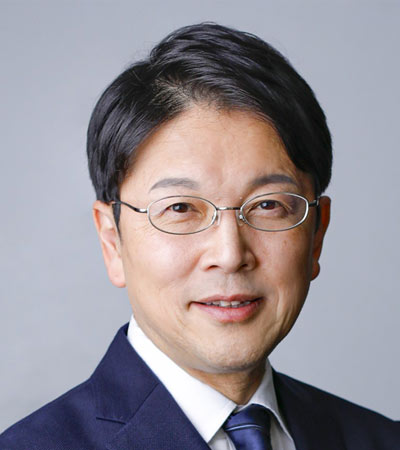
- Haruhisa Inoue
- Center for iPS Cell Research and Application (CiRA), Kyoto University, Japan
- More info
Education
Ph.D., November 2000, Kyoto University, Kyoto, Japan
M.D., May 1992, Kyoto University Kyoto, JapanPositions and Employment
- Deputy director, CiRA, Kyoto University, Since 2024
- Head of Department of Fundamental Cell Technology, CiRA, Kyoto University, Since 2022
- Team Director of iPSC-based Drug Discovery and Development Team, RIKEN BRC, Since 2017
- Senior Visiting Scientist of Medical-risk Avoidance based on iPS Cells Team, RIKEN AIP, Since 2017
- Professor of Department of Cell Growth and Differentiation, CiRA, Kyoto University, Since 2014
- Associate Professor of Department of Clinical Application, CiRA, Kyoto University, 2010-2014
- Program-Specific Associate Professor of CiRA, Institute for Integrated Cell-Material Sciences (iCeMS), Kyoto University, 2009-2010
- Assistant Professor of Department of Neurology, Graduate School of Medicine, Kyoto University, 2005-2009
- Postdoctoral Fellow of Neuroregeneraion Laboratory, McLean Hospital / Harvard Medical School, 2004-2005
- Staff Scientist of Laboratory for Motor System Neurodegeneration, RIKEN BSI, 1999-2004
- Research Fellow of Laboratory for Neuropathology, University Medical School of Pecs, 1997
- Research Resident / Research Fellow of Department of Demyelinating Disease and Aging, National Institute of Neuroscience, NCNP, 1997-1999
- Resident of Department of Neurology, Sumitomo Hospital, 1993-1997
- Resident of Department of Neurology, Kyoto University Hospital, 1992-1993
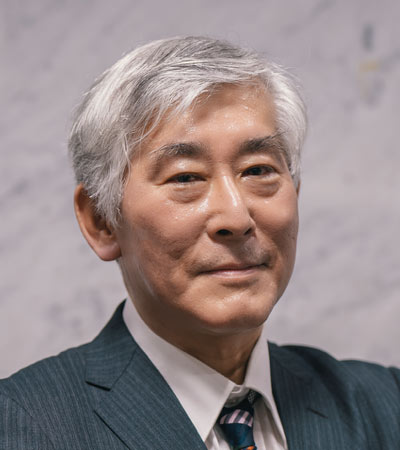
- Yukihito Ishizaka
- Japan Institute for Health Security, Japan
- More info
-
Yukihito Ishizaka is a Deputy Director General of National Institute of Global Health and Medicine (NIGHM). He is also a chief of Department of Intractable Diseases of NIGHM. He graduated Tohoku University School of Medicine in 1980. After 2-year training as a resident of pediatrics at Shizuoka Childrens’ Hospital, he entered post-graduate school of Jichi Medical School. In 1985, he moved to National Cancer Center and joined in the research of chemical carcinogenesis. From 1972, he joined to the Labobaroty of Dr. Geroge R Stark at Lerner Research Institute of Cleveland Clinic Foundation and studied the mode of gene amplification. In 1975, he came back to International Medical Center of Japan. During HIV-1 research, he invented a novel peptide that is applicable to a protein-based cell engineering system.
He was originally a pediatician, but clinical experience of intractable diseases directed him to a basic research. Although it took much time to establish a protein-based cell engneering system, it is now clear that this system can be useful for engineering tissue-stem cells from human fibroblasts.
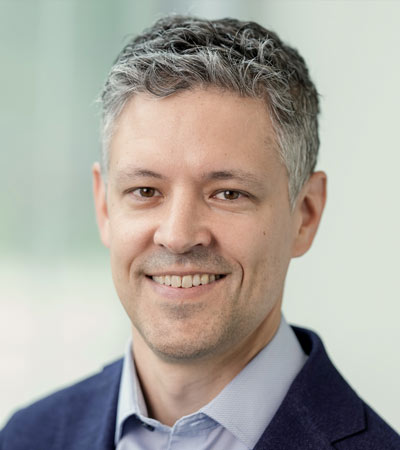
- David J. Pagliarini
- HHMI/Washington University School of Medicine in St. Louis, USA
- More info
-
Dave Pagliarini is the Urbauer Distinguished Professor and BJC Investigator at Washington University School of Medicine where he leads an interdisciplinary team of scientists investigating leading-edge challenges in mitochondrial biochemistry and metabolism. In particular, Dave’s lab blends large-scale systems approaches with mechanistic biochemistry to define the molecular underpinnings of mitochondria dysfunction in human disease. For this work, Dave has received a Searle Scholar Award, the Presidential Early Career Award for Scientists and Engineers (PECASE), the Young Investigator award from the Protein Society, and the Earl and Thressa Stadtman Young Scholar Award from the ASBMB. In 2024, Dave became an Investigator of the Howard Hughes Medical Institute. He lives in St. Louis with his wife, Carrie, and their two sons.
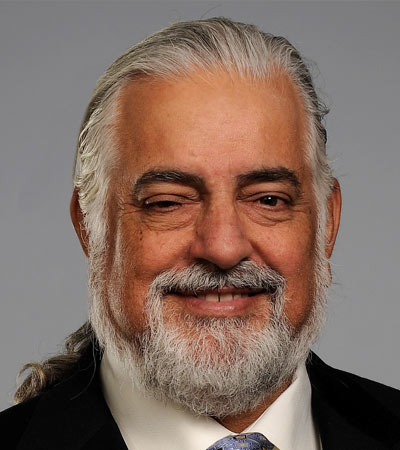
- Emil D. Kakkis
- Ultragenyx, USA
- More info
-
Dr. Kakkis is Chief Executive Officer, President and a Director of Ultragenyx. He founded Ultragenyx in 2010 to create a company that is uniquely built around a deep and meaningful engagement with patients and their caregivers to fully understand their needs. This includes designing a novel development model that fundamentally changed the established paradigms in clinical protocols, endpoints and analyses, as well as challenging traditional beliefs around commercialization and access to therapies for patients with rare and ultra-rare genetic diseases.
Dr. Kakkis began at the Harbor-UCLA Medical center where he was developing an enzyme replacement therapy for the rare disorder MPS I. He joined Biomarin in 1998 where he guided the development and approval of three treatments for rare diseases (MPS I, MPS VI and PKU) and contributed to the development of approved or development stage products for four other rare diseases (CLN2, MPSIVA, PKU, achondroplasia). He has worked to advance the cause of rare disease treatment through advocacy on policy issues by founding and supporting the EveryLife Foundation for Rare Diseases, a non-profit foundation dedicated to the acceleration of biotech innovation for rare diseases through practical and scientifically sound improvements to development strategies, regulatory policy and law.
Dr. Kakkis received the Life Science Leadership Pantheon award from California Life Sciences, a Lifetime Achievement Award from the National MPS Society, the Roscoe O. Brady Award for Innovation and Accomplishment from the WORLDSymposium, and BIO’s Henri Termeer Visionary Leadership award for this transformative work in rare diseases.
Dr. Kakkis graduated from Pomona College, magna cum laude, and received the Vaile prize for his biology research. He received combined M.D. and Ph.D. degrees from the UCLA Medical Scientist Program and received the Bogen Prize for his research upon graduation. He completed a pediatrics residency and a Medical Genetics Training Fellowship at Harbor-UCLA Medical Center, where he was an assistant professor of pediatrics and initiated the enzyme therapy program for MPS I. Dr. Kakkis was board certified in pediatrics and medical genetics.
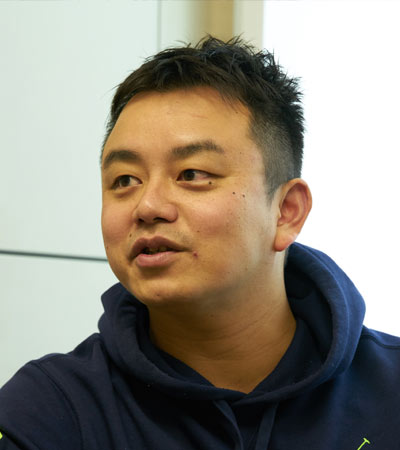
- Yousuke Katsuda
- Faculty of Advanced Science and Technology, Kumamoto University, Japan
- More info
- To be provided
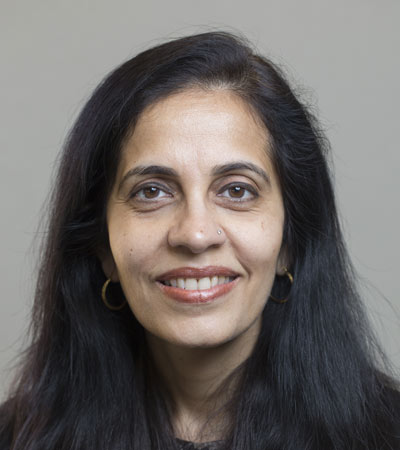
- Priya S. Kishnani
- Duke University Medical Center, USA
- More info
-
Dr. Kishnani is Chief of the Division of Medical Genetics, Department of Pediatrics, and Professor of Molecular Genetics and Microbiology at Duke University School of Medicine. She holds American Board of Medical Genetics and the American Board of Biochemical Genetics certifications.
Her passion is to establish the highest-quality of care and treatment by understanding the emerging natural history of individuals through investigator-initiated studies and clinical trials. She has published numerous articles, reviews, and textbook contributions on these conditions.
Dr. Kishnani participated in the clinical development of alglucosidase alfa to treat Pompe disease (PD), which attained a US Food and Drug Administration (FDA) approval in 2006, in the development of avalglucosidase alfa-ngpt, approved by FDA in 2021 and also Pombiliti and Opfolda in 2023. She also focuses on other next-generation therapies including gene therapy, small molecule therapy and therapies that target the CNS.
In 1999, Dr. Kishnani became Principle Investigator of a pilot study using recombinant human acid alpha glucosidase (rhGAA) in humans. From overexpressing carbohydrate cells and proving safety and efficacy in the quail animal model, the concept of rhGAA had been previously developed during her fellowship with Dr. YT Chen, PhD at Duke. In 1999, Dr. Kishnani was privileged to treat the first three infants with Pompe disease-all whom survived beyond the critical age of 1 year. The current surviving patient is now 22 years old, has completed college, and is now in the workforce and enjoying normal daily activities. Dr. Kishnani became the global principal investigator for multi-center international trials on the treatment for Pompe in partnership with Genzyme Corporation. Her successes were measured by the lives and ventilator-free survival of all enrolled study patients after 18 months of enzyme replacement therapy with Myozyme. Through the development of treatments for Pompe including enzyme replacement therapy (ERT), gene therapy, and small molecules such as Beta 2 agonists, Dr. Kishnani has gained international respect and recognition for the contribution of therapeutic interventions.
Dr. Kishnani has been instrumental in uncovering several long-term complications in Pompe disease, including osteopenia, speech and swallowing dysfunction, lingual weakness, pulmonary issues, sleep apnea, cardiac arrhythmias, smooth muscle and nervous system involvement. Based on her research and clinical experience with Pompe disease, she has identified several factors influencing medical and developmental outcome for these patients including early initiation of ERT and the extent of muscle involvement at ERT initiation.
Dr. Kishnani’s group has also been responsible for the development and validation of a reliable blood-based assay for measurement of GAA using dried blood spots. Given the uniform lethality of infantile Pompe disease and the value of early initiation of ERT, she worked to get Pompe added to the RUSP in 2015. (Her current focus is on a better understanding of the phenotype in children with LOPD diagnosed via NBS and also on the impact of early treatment including in utero treatment across the disease continuum.
The success she has achieved in treating Pompe disease has set the stage for treatment approaches for other neuromuscular diseases including spinal muscular atrophy (SMA) and Duchenne muscular dystrophy, as well as the development of a clinical consortium of neurology experts.
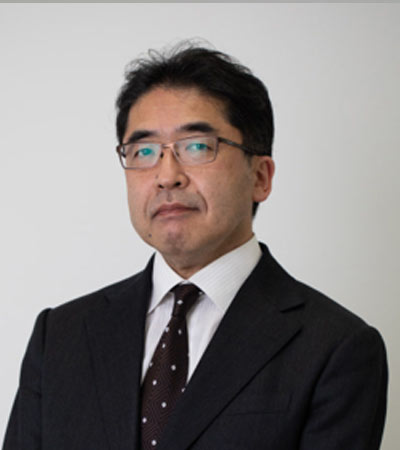
- Hiroshi Kobayashi
- Division of Gene Therapy, Research Center for Medical Sciences, The Jikei University School of Medicine, Japan
- More info
-
Professor
Division of Gene Therapy, Research Center for Medical Sciences
Department of Pediatrics, Department of Clinical Genetics
The Jikei University School of MedicineField of Research
Genetic disease, Gene Therapy
Education
Ph.D. (Dr. of Medical Science), The Jikei university school of Medicine, Tokyo, Japan
M.D. Passed the Examination of National Board
B.A. Yamagata university, Yamagata-city, Japan
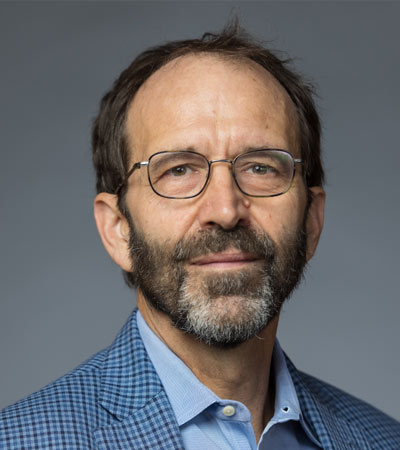
- Dwight Koeberl
- Duke University School of Medicine, USA
- More info
-
Dr Koeberl joined the Division of Medical Genetics in the Department of Pediatrics at Duke University in 1999. At Duke he has focused upon the development of new therapy for glycogen storage diseases. He serves as Medical Director for the Pediatrics Biochemical Genetics Laboratory and sees patients in the Metabolic Clinic. He is currently developing drug and gene therapy for Pompe disease and GSD Ia.

- Stefan Kölker
- Heidelberg Unversity Hospital and Heidelberg University, Medical Faculty, Centre for Pediatrics and Adolescent Medicine, Germany
- More info
- Prof. Kölker is Full Professor of Translational Metabolic Medicine and Pediatric Neurology at the Medical Faculty of Heidelberg University and Head of Division of Child Neurology and Metabolic Medicine at the Centre for Pediatrics and Adolescent Medicine, Heidelberg University Hospital, Germany. He graduated in Medicine from the University of Marburg and then trained as a specialist in Pediatrics and subsequently in Pediatric Metabolic Medicine as well as Pediatric Neurology in the Centre for Pediatrics and Adolescent Medicine at Heidelberg University Hospital.
Prof. Kölker has a long-standing experience in clinical and translational research focusing on inherited metabolic diseases and newborn screening. He is coordinator of the EU-funded projects E-IMD and U-IMD, vice-coordinator of MetabERN, and (Principal) Investigator of several clinical and translational studies (e.g. NGS 2025, NEW_LIVES, Recon4IMD, CHARLIE, SIMPATHIC, INTEGRATE-ATMP), aiming to elucidate phenotypic diversity, identify predictive biomarkers, optimize newborn screening, and to develop and evaluate AI-driven diagnostic pathways, drug repurposing, and innovative therapies for IMDs.
He is author of more than 250 peer-reviewed articles with a current h-index of 55 (WoS) resp. 67 (GoogleScholar).
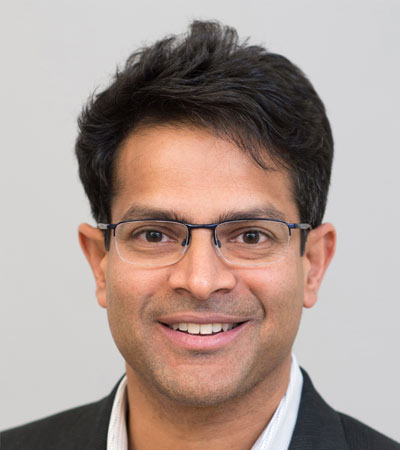
- Vamsi Krishna Mootha
- Massachusetts General Hospiral, Harvard Medical School, USA
- More info
-
Vamsi Mootha is a Professor of Systems Biology at Harvard Medical School and Investigator of the Howard Hughes Medical Institute. He directs a research laboratory dual-localized at Massachusetts General Hospital and the Broad Institute. His group focuses on mitochondrial biology and bioenergetics. He and his research team achieved a full characterization of the mitochondrial proteome, discovered all the molecular components of the mitochondrial calcium uniporter, and discovered dozens of genes and biochemical mechanisms underlying Mendelian forms of mitochondrial disease. His team made the unexpected discovery that low oxygen - hypoxia - can suppress diverse forms of mitochondrial disease in pre-clinical models. As a postdoctoral fellow he invented Gene Set Enrichment Analysis, an algorithm that has been adopted into a widely used software package. Vamsi completed his B.S. in Mathematical and Computational Sciences at Stanford, his MD in the Harvard-MIT Division of Health Sciences and Technology, clinical training in internal medicine at Brigham and Women's Hospital, and postdoctoral training at Whitehead Institute. He is a recipient a MacArthur Prize, an elected member of both the National Academy of Sciences and the National Academy of Medicine, and a recipient of a Padma Shri from the Government of India.
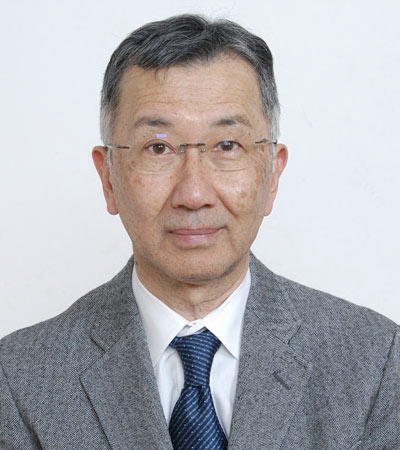
- Akihiro Kume
- Jichi Medical University, Japan
- More info
-
Education
1984 M.D. Tohoku University School of Medicine 1990 Ph.D. Tohoku University Graduate School of Medical Sciences Professional Training and Employment
1984-1986 Resident, Kanagawa Children's Medical Center 1990-1992 Medical Staff, Tohoku University Hospital 1992-1994 Post-doctoral Fellow, Indiana University School of Medicine 1994-1996 Assistant Professor, Kumamoto University School of Medicine 1996-2000 Assistant Professor, Jichi Medical University 2001-2014 Associate Professor, Jichi Medical University 2014-2016 Principal Reviewer, Pharmaceuticals and Medical Devices Agency 2016-2024 Professor, Jichi Medical University Hospital, Tochigi, Japan 2024-present Jichi Medical University Hospital Advisor, RPM Co., Ltd.
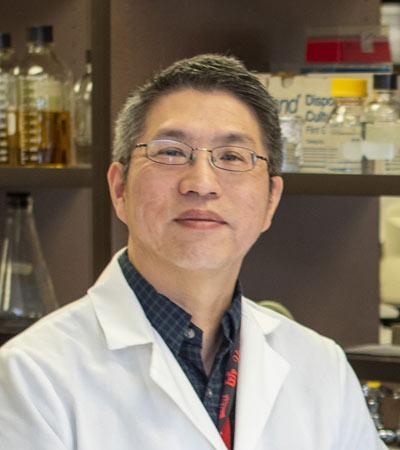
- Kent Lai
- University of Utah, USA
- More info
EDUCATION
1984-1986: Diploma Hong Kong Polytechnic (Medical Laboratory Sciences), Hong Kong (Diploma also awarded by British Technical and Education Council) 1986-1988: B.Sc. (Hons.) University of Bradford (Biomedical Sciences), Bradford, United Kingdom 1988-1994: Ph.D. University of Maryland (Molecular & Cell Biology), Baltimore, Maryland, U.S.A. 1994-1997: Postdoctoral Training Emory University School of Medicine, Atlanta, Georgia, U.S.A. PROFESSIONAL EXPERIENCE
2014–Present Professor (Tenured), University of Utah School of Medicine, Department of Pediatrics, Division of Medical Genetics, Salt Lake City, Utah, U.S.A. 2018-Present Adjunct Professor, University of Utah College of Health Sciences, Department of Nutrition and Integrative Physiology, Salt Lake City, Utah, U.S.A.
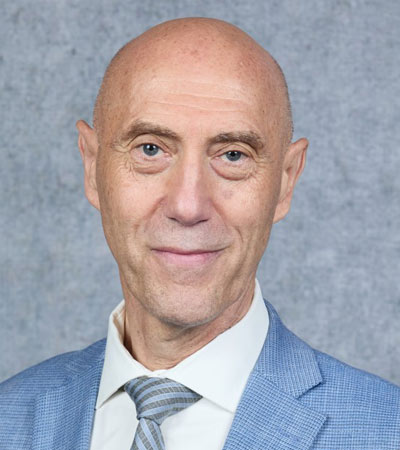
- Nicola Longo
- University of California Los Angeles (UCLA), USA
- More info
-
Dr. Longo is a Professor and Vice Chair of Human Genetics, the Dr. Allen and Charlotte Ginsburg Chair in Precision Genomic Medicine, and the Chief of the Division of Clinical Genetics at the David Geffen School of Medicine at University of California Los Angeles (UCLA). Dr. Longo earned his M.D. and Ph.D. in Molecular Biology at the University of Parma School of Medicine in Italy. He received residency and fellowship training in Pediatrics, Medical Genetics, and Clinical Biochemical Genetics at Emory University in Atlanta, Georgia. He was then at the University of Utah from 2001 to 2024 where he served as Professor of Pediatrics and Chief of the Division of Medical Genetics. He is passionate in advancing treatments for genetic and inherited metabolic diseases. His basic and clinic research cover disorders of fatty acid oxidation, carnitine metabolism, brain creatine deficiencies, and the development of novel treatments for metabolic disorders including phenylketonuria, homocystinuria, organic acidemias, urea cycle disorders, and lysosomal storage disorders.

- J Lawrence Merritt, II
- Ultragenyx Pharmaceutical, USA
- More info
-
1990-1994 Bachelor of Arts in Liberal Studies, Ambassador University, Big Sandy, TX. Primary emphasis Math/Science, Graduate with High Distinction. 1995-1999 Doctor of Medicine. Loma Linda University School of Medicine. Loma Linda, CA. 1999-2000 Resident, Combined Internal Medicine-Pediatrics Residency. OSF St. Francis Medical Center/ University of Illinois. Peoria, IL. Completed 1 year of program. 2000-2003 Pediatric and Adolescent Medicine Residency. Mayo Graduate School of Medicine.
Mayo Clinic College of Medicine. Rochester, MN.2003-2004 Medical Genetics Research Fellow. Mayo Graduate School of Medicine. Mayo Clinic College of Medicine. Rochester, MN. 2005-2006 Clinical Biochemical Genetics Fellowship. Mayo Graduate School of Medicine.
Mayo Clinic College of Medicine. Rochester, MN.2004-2007 Medical Genetics Residency. Mayo Graduate School of Medicine. Mayo Clinic College of Medicine. Rochester, MN.

- Pramod K. Mistry
- Yale University School of Medicine, USA
- More info
-
Professor of Medicine (Digestive Diseases), Pediatrics, and Cellular & Molecular Physiology
Director, Yale Gaucher Center for Lysosomal Diseases
Yale School of Medicine, New Haven, USAEducation & Training
- BSc (Hons) Physiology/Biochemistry - University of London
- PhD (Medicine) - St Thomas’ Hospital Medical School, London
- MB BS - Royal Free/University College London; MRCP & Fellow, Royal College of Physicians
- Fellowship in Metabolic Medicine & Hepatology - Addenbrooke’s Hospital, Cambridge
Research & Translational Impact in Inborn Errors of Metabolism
- Created the first authentic mouse models of Gaucher disease, enabling mechanistic dissection of neuronopathic and skeletal phenotypes.
- Identified glucosyl‑sphingosine (lyso‑GL1) as a pathogenic metabolite and clinical biomarker
- Led the ENGAGE Phase III eliglustat trial and co‑led the LEAP study of venglustat + imiglucerase for GD3.
- Current work: spatial‑omics of brain, lung, and lymphoid tissue to guide immunomodulation for neuronopathic Gaucher disease.
- 170 peer‑reviewed publications; H‑index 52; continuous NIH/industry funding.
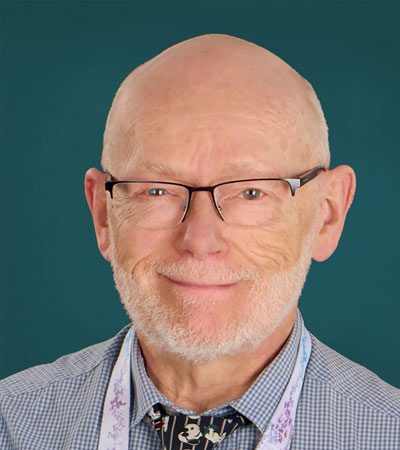
- Grant Mitchell
- Division of Medical Genetics and Genomics, Department of Pediatrics, CHU Sainte Justine and Université de Montréal, Canada
- More info
- Grant Mitchell trained in Pediatrics and Genetics, with research fellowships in Paris and Baltimore. He is Professor of Medical Genetics at the University of Montréal. He practices biochemical genetics at Sainte-Justine Hospital. His research interests include inborn errors of metabolism such as hepatorenal tyrosinemia that are more common in Quebec than elsewhere, and inborn errors of acyl-CoA metabolism, including many mitochondrial diseases and organic acidemias. For many years he collaborated with Professor Toshiyuki Fukao in studies of inborn errors of ketone body metabolism.
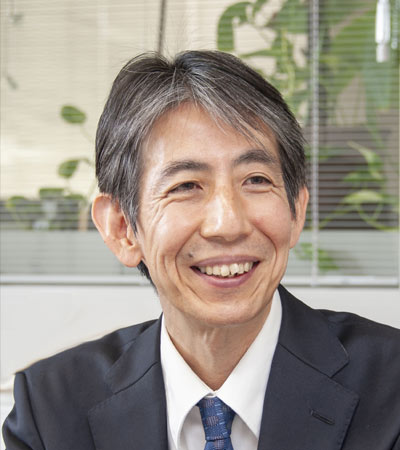
- Noboru Mizushima
- The University of Tokyo, Japan
- More info
-
Noboru Mizushima has been studying intracellular degradation systems, with a focus on autophagy and related pathways, for 28 years since joining Dr. Yoshinori Ohsumi’s lab in 1997. His group has identified key molecules involved in autophagy, developed monitoring methods, and uncovered the pathophysiological roles of autophagy and other degradation pathways in vertebrates. He received the Medal with Purple Ribbon of Japan in 2021 and the inaugural Beth Levine Prize in Autophagy Research in 2023. He is a former President of the Japanese Biochemical Society and currently serves as the President of the Japan Society for Cell Biology.
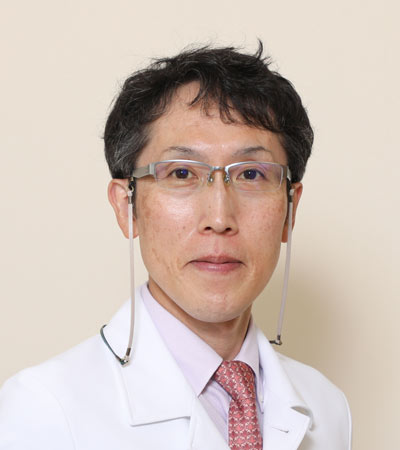
- Kazuhiro Muramatsu
- Jichi Medical University, Department of Pediatrics and Center for Gene Therapy Research, Japan
- More info
-
1998 Graduated from Gunma University School of Medicine 1998-2003 Department of Pediatrics and Neonatology, Japanese Red Cross Medical Center 2003-2004 Gunma University Hospital 2004-2008 Doctoral Course, Graduate School of Medicine, Gunma University 2005-2008 JSPS Research Fellowship DC1 2008-2009 Department of Pediatrics, Gunma University Hospital 2009-2015 Assistant Professor, Graduate School of Medicine, Gunma University 2011-2013 Dept. Neurology, Philipps University Marburg, Germany 2015-2016 Lecturer, Graduate School of Medicine, Gunma University 2016-2017 Lecturer, Gunma University Hospital 2017-2023 Associate Professor, Department of Pediatrics, Jichi Medical University 2023-Present Professor, Department of Pediatrics, Jichi Medical University 2023-Present Professor, Center for Gene Therapy Research, Jichi Medical University Japanese Pediatric Society (Board Certified Pediatrician, Board Certified Supervisor of Pediatrics), Japanese Society of Child Neurology (Board Certified Pediatrics Neurology, Councilor, Managing Editor of Brain & Development, Joint Research Promotion Committee, Chief of SMA screening Committee, Medical Safety Committee,), Infantile Seizure Society (Secretary General, Councilor), Japanese Society of Pediatric Radiology (Director and Councilor, Vice Editor of J.J.S.P.R.), Japanese Epilepsy Society (Councilor, Election Committee)
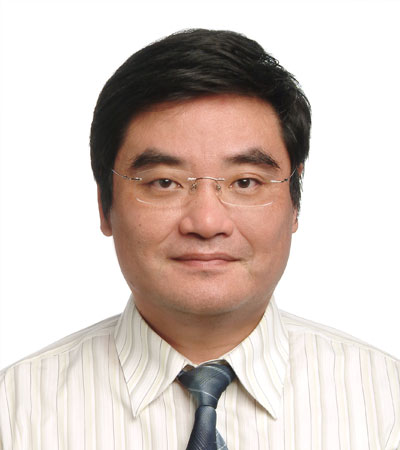
- Dau-Ming Niu
- Institute of Clinical medicine, National Yang Ming Chiao Tung University / Rare Disease Medical Research Center, Taipei Veterans General Hospital, Taiwan
- More info
-
Professor Dau-Ming Niu is the Director of the Rare Disease Research and Treatment Center at Taipei Veterans General Hospital and a Distinguished Professor at the Institute of Clinical Medicine, National Yang Ming Chiao Tung University. With over 30 years of experience in genetic research and clinical care, he is a leading expert in medical genetics, metabolic disorders, and precision medicine.
Professor Niu has pioneered advancements in newborn screening, enzyme replacement therapy, gene therapy, and the clinical application of next-generation sequencing (NGS)-with a particular focus on whole-genome sequencing (WGS). He developed Magic Bison, the world’s first real-time WGS analysis system, enabling rapid and comprehensive interpretation of genomic data in clinical practice. His work has led to world-leading outcomes in the treatment of PTPS deficiency and infantile-onset Pompe disease, and he was the first to identify a Taiwan-specific Fabry disease mutation. He also established a national referral system and the world’s largest Fabry disease biobank.
His current research integrates genomic medicine with artificial intelligence to advance precision health and therapies for rare diseases. He is initiating efforts to apply multi-omics data for disease risk stratification and to advance precision health through improved prediction and prevention. In parallel, his team is collaborating with leading biotechnology companies to develop AI-designed AAV vectors with enhanced tissue tropism and reduced immunogenicity. Human clinical trials are already underway in partnership with global industry partners.
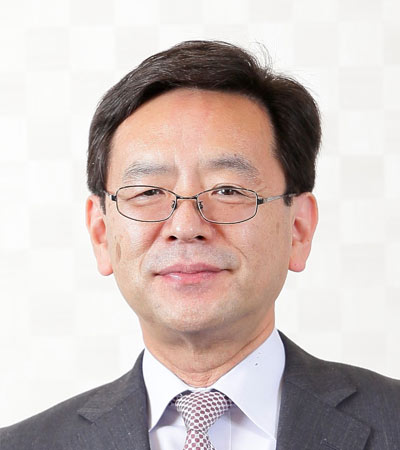
- Osamu Ohara
- Kazusa DNA Research Institute, Japan
- More info
EDUCATION
1977-1983 Department of Biophysics, Faculty of Science, Kyoto University
(Laboratory of Physical Chemistry of Enzyme, Institute for Chemical Research, Kyoto University), received a Ph.D. from Kyoto University in 1983.Occupation
1986-1988 Post-doctoral fellow with Prof. Walter Gilbert at Harvard University (The Biological Laboratories) under the support from Shionogi Research Laboratories, Shionogi & Co., Ltd. 1988-1994 Shionogi Research Laboratories, Shionogi & Co. Ltd. 1994- Kazusa DNA Research Institute. (From 2020, Executive director) 2001-2015 Visiting professor of Laboratory of Pharmacogenomics, Graduate School of Pharmaceutical sciences, Chiba University. 2001-2022 Research Center for Allergy and Immunology, RIKEN Yokohama Institute Team leader for laboratory of Immunogenomics 2014- Specially appointed professor, Future Medicine Education and Research Organization, Chiba University 2020- Specially appointed professor, Medical school of Shinshu University Research societies: Executive director of Japanese society of Omics medicine and Japanese society for neonatal screening; Adviser of Japanese society of immunodeficiency and autoinflammatory diseases.
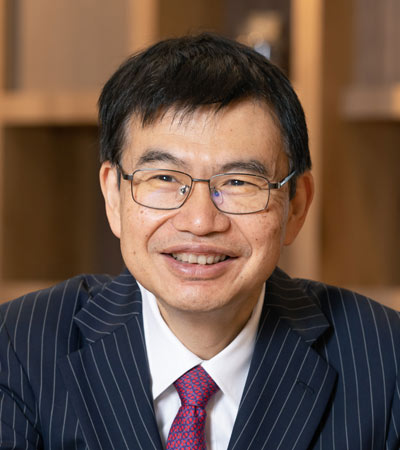
- Hideyuki Okano
- Keio University Regenerative Medicine Research Center (KRM), Japan
- More info
-
2015-2017 Dean, Keio University School of Medicine, Japan 2008- Honorary Professor, the Queensland Brain Institute, Australia. 2007-2015 Dean, Keio University Graduate School of Medicine, Japan. 1997-2001 Professor, Department of Neuroscience, Osaka University Graduate School of Medicine, Japan. 1994-1997 Professor, Department of Molecular Neurobiology, Institute of Basic Medical Sciences, University of Tsukuba, Japan. 1992-1994 Instructor, Department of Molecular Neurobiology, Institute of Medical Science, University of Tokyo, Japan. 1989-1993 Postdoctoral Research Fellow, Department of Biological Chemistry, The Johns Hopkins University School of Medicine, Japan. 1985-1989 Instructor, Institute for Protein Research, Osaka University, Japan. 1983-1985 Instructor, Department of Physiology, Keio University School of Medicine, Japan.
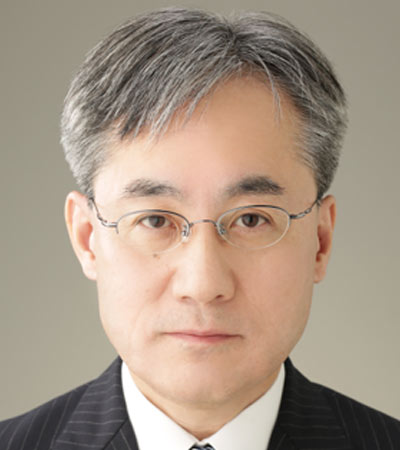
- Masafumi Onodera
- Graduate School of Engineering Osaka University, Japan
- More info
-
Field of Research
Gene Therapy, Pediatrics, Hematology
Professional Experience
1986-1994 Dpt. Pediatrics, Hokkaido University 1990-1993 Dpt. Morphogenesis, Kumamoto University (Dr. SI. Nishikawa) 1994-1998 Visiting fellow in NIH (Clinical Gene Therapy Branch, Dr. RM.Blaese) 1998-2001 Dpt. Immunology, Tsukuba University (Researcher) 2001-2008 Dpt. Hematology, Tsukuba University (Assistant Prof.) 2008- Dpt. Human Genetics, Institute, National Center for Child Health and Development (Head) 2009- Div, Immunology, Hospital, National Center for Child Health and Development (Chief) 2019- Gene and Cell Promotion Center, National Center for Child Health and Development (Director) 2025- Graduate School of Engineering, The University of Osaka (Non-tenured professor) Members of the Academic Societies
Japan Society of Gene and Cell therapy, Japanese Society for Immunodeficiency and Autoinflammatory diseases, Japan Pediatric Society, American Society of Gene and Cell therapy, European Society of Gene and Cell therapy.
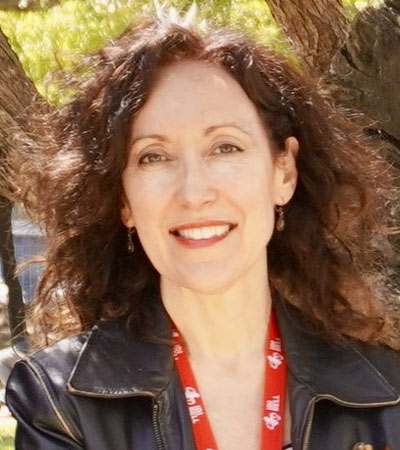
- Aurora Pujol
- Bellvitge Biomedical Research Insitute (IDIBELL), Spain
- More info
-
Dr. Aurora Pujol is a physician-scientist specializing in medical genetics and neuroscience. She earned her medical degree from the University of Barcelona and completed a PhD in Molecular Biology at the DKFZ–University of Heidelberg (Germany). Her clinical and research training spans top international institutions, including residency in Medical Genetics (1998-2001) and postdoctoral work at the IGBMC–University of Strasbourg (France) and advanced training in Clinical and Laboratory Genetics at the NIH/NHGRI (USA), where she became board certified by the American College of Medical Genetics in 2017 (FACMG).
At IDIBELL in Barcelona, Spain, Professor Pujol leads the Neurometabolic Diseases Laboratory since 2005, with a mission to advance the genomic diagnosis and treatment of rare brain metabolic disorders. Her team combines computational genomics and functional biology to uncover the molecular basis of ultrarare neurological diseases. To date, they have identified 12 new disorders and their causative genes, shedding light on critical pathways in brain metabolism.
Their integrative approach—linking multiomics data to therapeutic development—has led to five Orphan Drug Designations using repurposed drugs, targeting conditions such as adrenoleukodystrophy and Hypomyelinating Leukodystrophy 18 (HDL-18). These efforts are paving the way for clinical trials, addressing critical unmet medical needs.
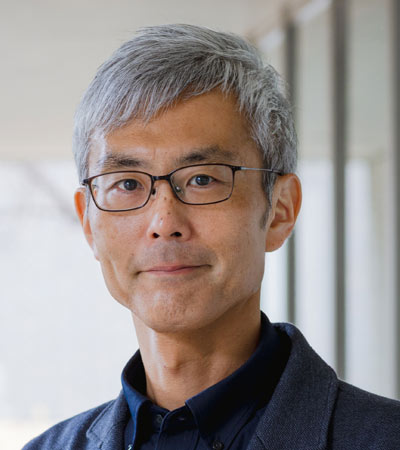
- Hirohide Saito
- Institute for Quantitative Biosciences, The University of Tokyo, Japan/ Center for iPS Cell Research and Application (CiRA), Kyoto University, Japan
- More info
-
Hirohide Saito is Professor at Institute for Quantitative Biosciences (IQB), The University of Tokyo, and Center for iPS Cell Research and Application (CiRA), Kyoto University. After completing predoctoral training at the University of Tokyo and SUNY Buffalo, he received his Ph.D. from the University of Tokyo in 2002. He is interested in the field of mammalian synthetic biology and RNA/RNP design biology. Using newly developed RNA and RNP technologies, he aims to understand design principle of living systems and contribute to future medicine.
Website:
https://www.iqb.u-tokyo.ac.jp/hirohidesaito-tokyo/en/
HirohideSaitoLab - Home_EN (google.com)
https://www.iqb.u-tokyo.ac.jp/lab/saito/
https://www.cira.kyoto-u.ac.jp/e/research/hsaito_summary.html
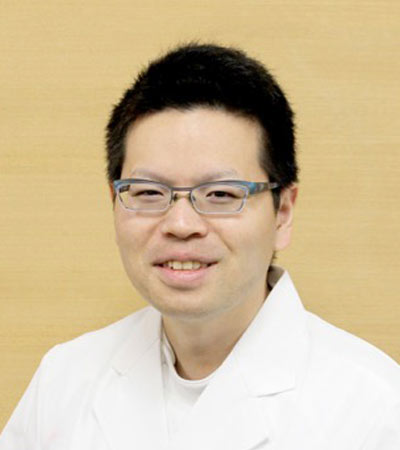
- Hideo Sasai
- Department of Pediatrics/Department of Early Diagnosis and Preventive Medicine for Rare and Intractable Pediatric Diseases, Graduate School of Medicine, Gifu University, Japan
- More info
Education and Training
2000-2006 M.D. Degree, Gifu University School of Medicine 2013-2017 Ph.D. Degree, Gifu University Graduate School of Medicine 2006-2008 Medical Resident at Kizawa Memorial Hospital/ Gifu University Hospital 2008-2011 Resident at Department of Pediatrics, Gifu University Hospital/ Nagahama City Hospital 2011-2013 Clinical fellow at Department of Neonatology, Gifu Prefectural General Medical Center 2012-2013 Clinical fellow at Department of Pediatrics, Nagahama City Hospital 2013-2017 Clinical fellow at Department of Pediatrics/ Division of Neonatal Intensive Care Unit, Gifu University Hospital 2017-2019 Clinical Lecturer at Division of Neonatal Intensive Care Unit, Gifu University Hospital 2019-2021 Assistant professor at Department of Pediatrics, Gifu University Graduate School of Medicine 2021-2022 Concurrent Lecturer at Department of Pediatrics, Gifu University Graduate School of Medicine
(Seconded to the Kazusa DNA Research Institute as a specially appointed researcher. 2022-2024)2023-Present Project Associate Professor at Department of Early Diagnosis and Preventive Medicine for Rare Intractable Pediatric Diseases, Gifu University Graduate School of Medicine Professional Certifications
- Board Certified Pediatrician (Japan Pediatric Society)
- Board Certified Supervisor of Pediatrics (Japan Pediatric Society)
Memberships
- Board Member of Japanese Society for Inherited Metabolic Diseases (JSIMD)
- BoardBoard Member of Japanese Society for Neonatal Screening (JSNS)
Award
2015 Travel Award (Japanese Society for Inherited Metabolic Diseases; JSIMD) 2017 Promotion Award (Japanese Society for Inherited Metabolic Diseases; JSIMD) Sasai began work on inborn errors of metabolism under the supervision of the late Professor Toshiyuki Fakao of Gifu University, focusing on the pathophysiological analysis of ketone body metabolism disorders and fatty acid oxidation disorders. He is currently continuing studies on genetic and pathophysiological analysis by integrating next-generation sequencing (NGS) and multi-omics approaches such as RNA-Seq. In particular, he has been involved in numerous functional analyses and genetic diagnoses of disorders including beta-ketothiolase deficiency (ACAT1), SCOT deficiency (OXCT1), and HMG-CoA synthase deficiency (HMGCS2). He is also engaged in the development of novel diagnostic methods for expanded newborn mass screening.
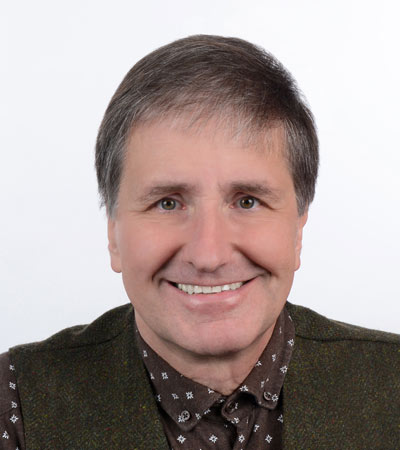
- Jörn Oliver Sass
- Bonn-Rhein-Sieg-University of Applied Sciences, Germany
- More info
-
Jörn Oliver Sass is Professor of Bioanalytics and Biochemistry at the Bonn-Rhein-Sieg University of Applied Sciences in Germany (Department of Natural Sciences & Institute for Functional Gene Analytics) and head of its "Research Group Inborn Errorrs of Metabolism". Upon the completion of his doctoral degree in Biochemistry at the Freie Universität Berlin (Germany) in 1996, Dr Sass joined the University of Innsbruck in Austria where his task was to establish a laboratory working on the diagnosis and characterization of inborn errors of metabolism. In 2002, Dr Sass became head of the Laboratory of Metabolism in Freiburg (Germany) which he merged with the Children's Hospital's Clinical Chemistry Laboratory in 2006, thus forming the Laboratory of Clinical Biochemistry and Metabolism under his direction. Following his habilitation in Clinical Biochemistry in 2005, Dr Sass was appointed supernumerary professor of the Medical Faculty of the University of Freiburg in 2009. In 2012, Dr Sass moved to Switzerland and became principal biochemist in the Division of Clinical Chemistry and Biochemistry of the University of Zürich Children’s Hospital, prior to assuming his current post in 2015. 2020/21 he spent a research sabbatical at UCD Conway Institute of Biomolecular & Biomedical Research in Dublin (Ireland). His special research interests in the field of inborn errors of metabolism comprise disorders of the metabolism of branched-chain amino acids (including disorders of ketogenesis and ketolysis), acylation and deacylation (comprising genetic deficiencies of aminoacylases such as Canavan disease), and human fructose metabolism. His laboratory uses a wide range of techniques from biochemistry, molecular biology, cell culture and microscopy. Recently, the nematode Caenorhabditis elegans has been introduced as an invertebrate model in his group’s metabolism research.
Contact: joern.oliver.sass@h-brs.de
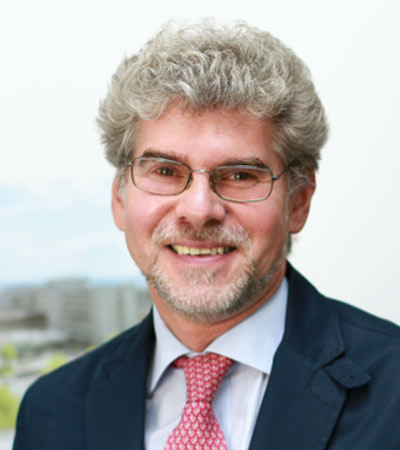
- Maurizio Scarpa
- Azienda Sanitaria Universitaria Friuli Centrale, Italy
- More info
-
Maurizio Scarpa, MD PhD, paediatrician, is the Director of the Regional Coordinating Centre for Rare Diseases at the University Hospital of Udine, Italy. He is Professor of Paediatrics at the Dept. for the Woman and Child Health, University of Padova, Italy, and the Co-Founder of the Brains For Brain Foundation, together with Prof. David Begley, Kings College of London, London, UK. Prof. Scarpa has extensive expertise as a basic scientist in genetics and biotechnology, as well as a clinician in the diagnosis and treatment of paediatric rare disorders; neurometabolic diseases in particular. Together with dr. Christina Lampe he founded the Center for Rare Diseases at the Helios Dr. Horst Schmidt Kliniken in Wiesbaden, Germany. He is especially interested in developing innovative health approaches for the diagnosis and the treatment of metabolic inherited diseases; to this aim he is also collaborating with major biotech companies as an external independent expert. Prof. Scarpa is the Coordinator of the European Reference Network for Hereditary Metabolic Diseases, MetabERN, formed by 101 healthcare providers in 27 EU countries (www.metab.ern-net.eu) to facilitate patient-centered holistic activities to implement knowledge, diagnosis, management and treatment for inherited metabolic diseases.
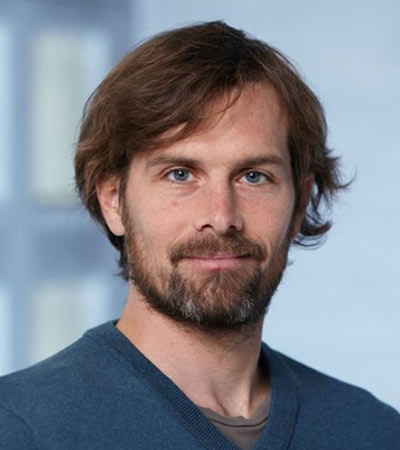
- Gerald Schwank
- University of Zürich, Switzerland
- More info
-
Gerald Schwank is a Professor at the Medical Faculty of the University of Zurich, specializing in translational genome editing. His research focuses on developing and applying gene editing technologies to correct genetic diseases, with a particular emphasis on inherited metabolic disorders of the liver. After earning a PhD in Molecular Biology from the University of Zurich and completing postdoctoral training at the Hubrecht Institute-where he pioneered CRISPR editing in patient-derived intestinal organoids—he established his independent research group at ETH Zurich in 2015. There, he developed high-throughput CRISPR screening tools to investigate disease mechanisms and initiated efforts toward therapeutic genome editing.
Since his appointment at the University of Zurich in 2019, the Schwank lab has focused on correcting liver and neurological disorders through in vivo delivery of precision genome editors. His team utilizes lipid nanoparticles and AAV vectors to deliver base and prime editors into target tissues, enabling durable correction of disease-causing mutations in preclinical models. To enhance the efficacy and specificity of these tools, the lab also integrates directed protein evolution and deep learning–based prediction platforms.
Gerald Schwank’s work bridges mechanistic insight and clinical translation, with the long-term goal of establishing genome editing as a curative therapy for patients with monogenic liver diseases.
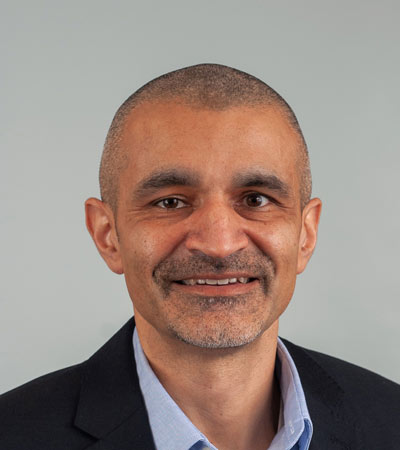
- Rohit Sharma
- Massachusetts General Hospital, USA
- More info
-
Rohit Sharma is an Instructor at Massachusetts General Hospital and directs efforts to identify biomarkers of mitochondrial disease within the laboratory of Vamsi Mootha. After completing his PhD in biophysics and medical training in internal medicine, he completed Fellowship in Clinical Genetics at Harvard Medical School. For the past 10 years, his work has focused on applying analytical methods to patient samples and model systems to elucidate disease biomarkers and their mechanistic origins. Through mining full-scan metabolomics applied to deeply phenotyped cohorts, these efforts have revealed novel biomarkers with translational
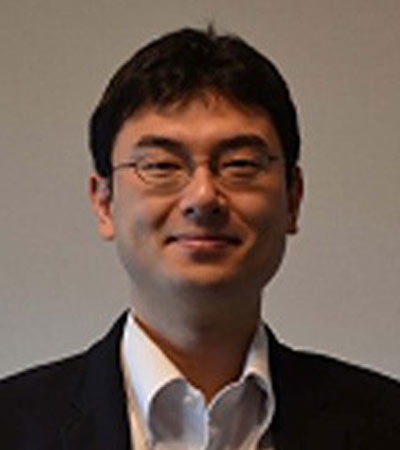
- Norifumi Shioda
- Kumamoto University, Japan
- More info
-
DEGREE
2010 September Ph.D. (Doctorate of Pharmacy) in Tohoku University EMPLOYMENT
2004 April-2014 September Assistant professor, Department of Pharmacology, Graduate School of Pharmaceutical Sciences, Tohoku University 2014 October-2016 March Associate professor, Department of Pharmacology, Graduate School of Pharmaceutical Sciences, Tohoku University 2016 April-2018 June Associate professor, Department of Biofunctinal Analysis Laboratory of Molecular Biology, Gifu Pharmaceutical University 2018 July-2022 July Associate professor (Principal investigator), Kumamoto University, Department of Genomic Neurology, Institute of Molecular Embryology and Genetics. (IMEG) 2022 August- Professor, Kumamoto University, Department of Genomic Neurology, Institute of Molecular Embryology and Genetics. (IMEG)
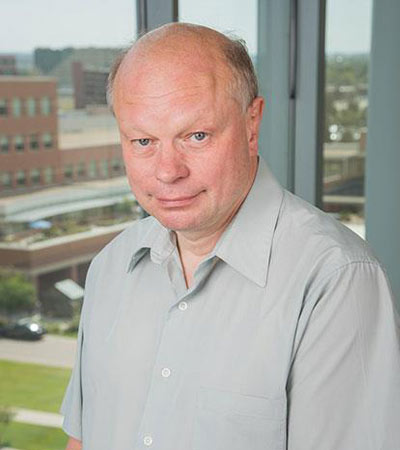
- Johan L.K. Van Hove
- University of Colorado, USA
- More info
-
Dr. Van Hove received his medical education and his training in pediatrics at the Catholic University Leuven in Belgium. He did a fellowship in clinical and biochemical genetics at Duke University Medical Center, Durham, NC, USA. He obtained his PhD from the University in Leuven. He spent time in Australia where he learned mitochondrial diseases. He worked from 1998 to 2003 in Leuven. Since 2003 he has been at the University of Colorado and Children’s Hospital Colorado. His research interests include disorders of cellular energetics as part of the Mitochondrial Center in Colorado. This research equally focuses on diagnostic studies with application on new disorders, and use for evaluation of new therapies. His other research interest includes neurometabolic disorders in particular disorders of glycine metabolism. He has been studying nonketotic hyperglycinemia for over 30 years. He has studied the clinical spectrum, radiologic features, the genetic basis, and the optimization of current treatments of benzoate and ketogenic diet. Current studies focus on mouse models to studying the biochemistry and develop new treatments. In clinic, studies focus on a natural history study aimed at clinical trial preparedness.
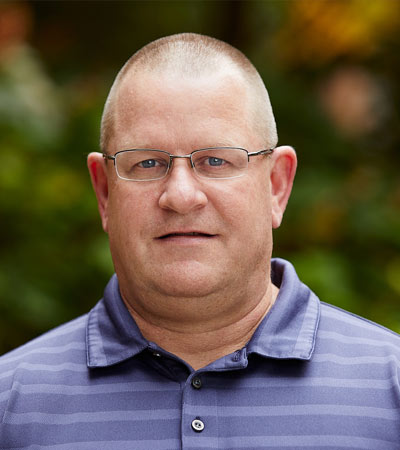
- Charles P. Venditti
- National Institutes of Health, USA
- More info
-
Dr. Charles P. Venditti, a clinical and biochemical geneticist, is a Senior Investigator and Chief of the Metabolic Medicine Branch in the National Human Genome Research Institute at the National Institutes of Health in Bethesda, MD. With an outstanding group of clinical and laboratory colleagues, he has developed a translational research program to study the natural history and clinical phenotype(s) of the hereditary methylmalonic acidemias (MMA), cobalamin metabolic disorders, and propionic acidemia (PA). His laboratory is developing gene, cell and small molecules therapeutics to treat MMA and PA.
Dr Venditti has received numerous awards, including a Presidential Early Career Award for Scientists and Engineers (PECASE), the US Government’s highest honor for early-career scientists. He is an elected member of the American Society of Clinical Investigation (ASCI), serves on numerous medical, advisory and editorial boards, and is a frequent ad hoc reviewer for local, national, and international granting agencies. He has authored more than 235 peer reviewed research articles, reviews, and textbook chapters and is an inventor, with a portfolio that encompasses 25 US patents. His publications include original contributions related to newborn screening, model organism [worms, fish, mice] biology, disease gene identification, gene and mRNA therapy, therapeutic genome editing, AAV integration, post translational modifications, and more broadly, clinical research focused on organic acidemias and disorders of propionyl-CoA oxidation.
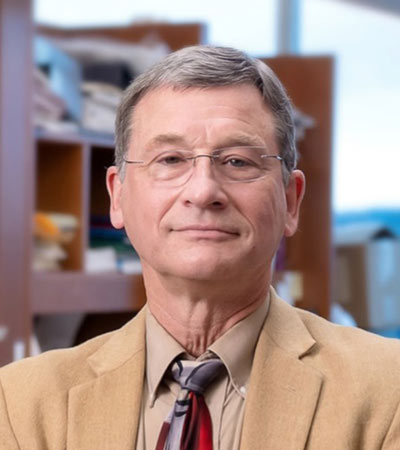
- Jerry Vockley
- University of Pittsburgh School of Medicine, USA
- More info
-
Dr. Vockley received his undergraduate degree at Carnegie-Mellon University in Pittsburgh, Pennsylvania, and received his degree in Medicine and Genetics from the University of Pennsylvania School of Medicine in Philadelphia, Pennsylvania. He completed his pediatric residency at the University of Colorado Health Science Center, and his postdoctoral fellowship in Human Genetic and Pediatrics at Yale University School of Medicine in New Haven, Connecticut. Before assuming his current position in Pittsburgh, Dr. Vockley was Chair of Medical Genetics in the Mayo Clinic School of Medicine.
Dr. Vockley is internationally recognized as a leader in the field of inborn errors of metabolism. His lab has been responsible for identifying multiple new genetic disorders, many of them defects in mitochondrial energy metabolism, and he has published over 350 scientific articles in peer review journals. His current research focuses on the molecular architecture of mitochondrial energy metabolism, in which he is breaking new ground in describing the role of dysfunction of mitochondrial energy metabolism in such common conditions as diabetes, obesity, and Alzheimer disease, and branced chain amino acid metabolism. He also is a leader in the development and testing of novel therapeutic agents for treating inborn errors of metabolism. He is the principal or Co-investigator on multiple NIH grants. He holds multiple US and international patents and has had two drugs for treatment of metabolic disorders approved by the FDA. He is the founder of the Plain Communities Translational Medicine program at the Children’s Hospital of Pittsburgh. He received a UPMC Wolff Center Award for Excellence in Patient Experience in 2017. He is a Fellow in the American Association for the Advancement of Science.
Dr. Vockley has served on numerous national and international scientific boards including the Advisory Committee (to the Secretary of Health and Human Services) on Heritable Disorders in Newborns and Children where he was chair of the technology committee. He is co-chair of the International Network on Fatty Acid Oxidation Research and Therapy (INFORM). He is past chair of the Pennsylvania State Newborn Screening Advisory Committee and the American College of Medical Genetics and Genomics Therapeutics Committee. He is member of the Board of Directors for the American College of Medical Genetics and Genomics. He is a past president of the International Organizing Committee for the International Congress on Inborn Errors of Metabolism and the Society for the Inherited Metabolic Disorders (SIMD). He is also a volunteer medical advisor for several parent and family support groups including the Fatty Acid Oxidation Family Support Group, Save Babies through Screening, United Mitochondrial Disease Foundation, and the Organic Acidemia Support Group. He speaks at multiple family support functions throughout the year for CanPKU and the NPKU Alliance. He was recognized as a Champion for Babies by the March of Dimes in 2015.
Dr. Vockley is the co-founder and director of the North American Metabolic Academy established by the SIMD to help educate the next generation of metabolic physicians in the United States, and serves as associate editor for the journal Molecular Genetics and Metabolism. He is founder of the International Network on Fatty Acid Oxidation Research and Management (INFORM). He is a Founding Fellow of the American College of Medical Genetics and Genomics, and currently serves on its board of directors. Dr. Vockley was recognized in 2002 as the Research Educator of the Year while at the Mayo Clinic, and received University Faculty Honors for his educational efforts in 2014. At the University of Pittsburgh, Dr. Vockley teaches in the both the Medical School and School of Public Health. Dr. Vockley has mentored numerous Ph.D. candidates, post-doctoral fellows, and undergraduate in their research.
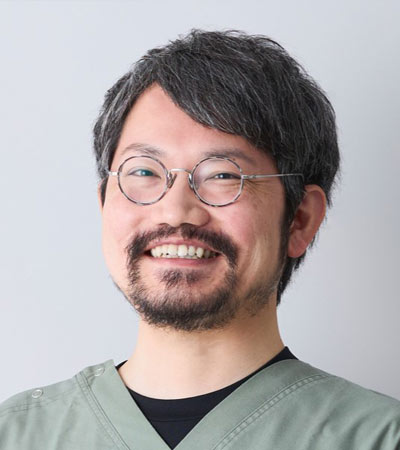
- Yoichi Wada
- Tohoku University Hospital, Japan
- More info
Education and Professional Experience
- March 2010: Graduated from Tohoku University School of Medicine (M.D.)
- April 2010 - March 2012: Clinical Resident, Kurashiki Central Hospital
- April 2012 - March 2015: Pediatric Resident, Kurashiki Central Hospital
- April 2015 - March 2019: Ph.D. Program, Tohoku University Graduate School of Medicine, (Department of Pediatrics)
- April 2019 - September 2023: Assistant Professor, Department of Pediatrics, Tohoku University Hospital
- September 2023 - December 2024: Visiting Fellow, Metabolic Medicine Branch, National Human Genome Research Institute, NIH (in the laboratory of Dr. Charles Venditti)
- October 2024 - March 2025: Assistant Professor, Department of Pediatrics, Tohoku University Hospita
- April 2025 - Present: Lecturer, Department of Medical Science and Innovation, SiRIUS Institute of Medical Research, Tohoku University; Concurrent Position: Department of Pediatrics, Tohoku University Hospital
Qualifications
- Doctor of Philosophy (Ph.D. in Medical Science)
- Board-Certified Pediatrician / Pediatric Instructor
- Board-Certified Clinical Geneticist
Awards
- 2012: Ivy Orator, Kurashiki Central Hospital
- 2019: Encouragement Award, Japanese Society for Inherited Metabolic Diseases (JSIMD)
- 2019: Travel Award, JSIMD
- 2019: Arakawa Memorial Award, Department of Pediatrics, Tohoku University
- 2023: Tohoku University Prominent Research Fellow
- 2023: Best Young Investigator Award, JSIMD
- 2023: Travel Award, Society for the Study of Inborn Errors of Metabolism (SSIEM)
- 2023: The JSPS Japanese Research Fellowship at NIH (KAITOKU-NIH)
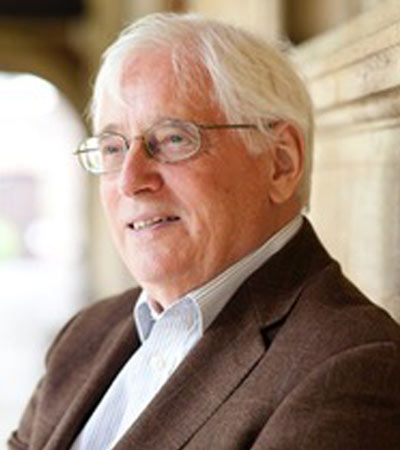
- John Walker
- Nobel Laureate in Chemistry (1997), MRC Mitochondrial Biology Unit, University of Cambridge, UK
- More info
-
John Walker is a leading figure in the world of biochemistry and is the Director Emeritus and Professor Emeritus of Molecular Bioenergetics at the MRC Mitochondrial Biology Unit in the University of Cambridge. His studies of the ATP synthase in mitochondria showed that the energy provided by the oxidation of dietary sugars and fats is coupled by a mechanical rotary mechanism in the enzyme to the generation of the 50 kg of ATP that each of us makes daily to sustain our lives, recognised by the 1997 Nobel Prize in Chemistry. In 2021, he described the mechanism of the generation of rotation in ATP synthase from the transmembrane proton motive force. His recent studies have demonstrated that the human ATP synthase is assembled from intermediary modules of the machine, akin to the way this complex machine has probably evolved. Earlier, he discovered the two eponymous protein sequence motifs involved in binding nucleotides in a wide range of proteins, the most widely dispersed such motifs in the entire protein repertoire. Also in human mitochondrial DNA, he identified three of the thirteen encoded proteins, proved the presence of overlapping genes and defined non-canonical codons. He established the subunit composition of mitochondrial respiratory complex I in mammals, sequenced its 38 nuclear encoded proteins and described their distribution between membrane extrinsic and membrane intrinsic domains. He defined the characteristic features of the family of mitochondrial transport proteins, the largest family of solute transporters in humans, and helped to identify the biochemical functions of 15 members, including citrin, the aspartate-glutamate exchanger, which is defective in the urea cycle disorder, Citrin Deficiency. He is currently Chair of the Scientific Supervisory Borad of the Citrin Foundation.
John was born in Halifax, Yorkshire in the UK. He studied chemistry at St. Catherine's College at the University of Oxford where he obtained a B.A. in 1965. In 1969, he was awarded a D.Phil. degree in biochemistry by the University of Oxford for research on peptide antibiotics conducted at the Sir William Dunn School of Pathology. He continued his research into antibiotics from 1969-71 at the University of Wisconsin in Madison, USA, and then developed his skills in protein chemistry at the Pasteur Institute in Paris, France. In 1974, he joined the MRC Laboratory of Molecular Biology in Cambridge where he conducted his research until 1998. In 1998, John was appointed Director of the MRC Dunn Human Nutrition Unit in Cambridge, which became the MRC Mitochondrial Biology Unit in 2008. In 1999, he was knighted for his services to Science. He is a Fellow of the Royal Society, and in 2012, he received its Copley Medal, the UK’s highest scientific accolade. He is also a Fellow of the Academy of Medical Sciences, a Fellow Emeritus of Sidney Sussex College, Cambridge, an Honorary Fellow of St Catherine’s College, Oxford, a Foreign Member of L’Accademia Nazionale dei Lincei, of the Royal Netherlands Academy of Arts and Sciences, and of The Royal Society of New Zealand, and a Foreign Associate of the US National Academy of Sciences. His numerous accolades include the Biochemical Society’s Keilin and CIBA Medals, the Peter Mitchell Medal and The Messel Medal of The Society of Chemistry and Industry. He has received 16 honorary doctorates from universities around the world including the Honorary Degree of Doctor of Science honoris causa from the Universities of Oxford and Cambridge.
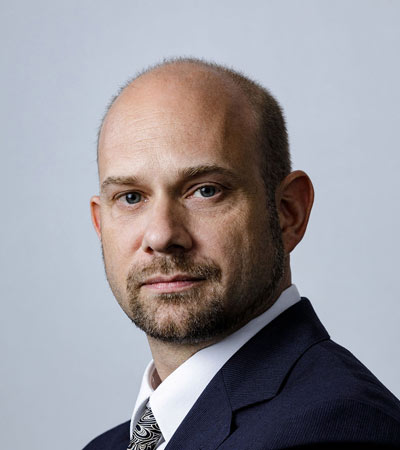
- Knut Woltjen
- CiRA, Kyoto University, Japan
- More info
-
Dr. Woltjen is an Associate Professor in the Center for iPS Cell Research and Application (CiRA) and alumnus of the Hakubi Center for Advanced Research of Kyoto University, Japan. He received his B.Sc. (Honours) in Molecular Genetics and his Ph.D. thesis focused on the development of gene editing technologies for mouse and human embryonic stem (ES) cells. As a post-doctoral fellow, Dr. Woltjen employed the piggyBac transposon to create the first footprint-free mouse and human induced pluripotent stem cell (iPS) cells. In CiRA, Dr. Woltjen and his colleagues have continued to use piggyBac to direct the differentiation of iPS cells into cells such as muscle and neurons, as well as achieve precision gene editing. Dr. Woltjen’s lab demonstrated the utility of microhomology-mediated end joining (MMEJ) to create human pathogenic deletions and precise edits. Dr. Woltjen’s ongoing research focuses on developing and applying methods for precision genome and epigenome editing to improve cell therapies as well as understand and control the genetics of human health, disease, and evolution.
Lab website: https://woltjen.cira.kyoto-u.ac.jp/research/
CiRA website: https://www.cira.kyoto-u.ac.jp/e/research/woltjen_summary.html
PubMed: https://pubmed.ncbi.nlm.nih.gov/?term=Woltjen+K+%5Bau%5D&sort=pubdate
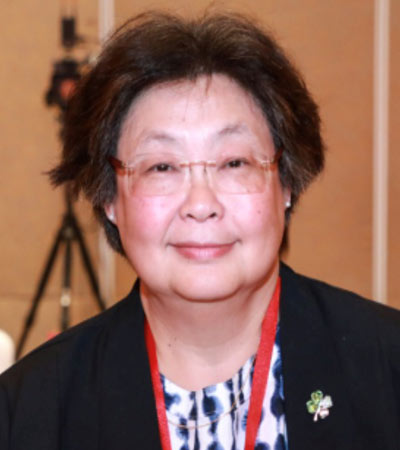
- Sufin Yap
- Sheffield Children’s Hospital, UK
- More info
-
Emeritus Professor Sufin Yap recently retired from her clinical work in January 2025, after more than 12 years at Sheffield Children’s Hospital, UK. She continues on as an Honorary Consultant Paediatrician in Metabolic Medicine at Sheffield Children’s Hospital and Honorary Senior Lecturer at the University of Sheffield, UK. Prior to that, she was a Professor of Paediatrics (inherited Metabolic Disorders) and Consultant Metabolic Paediatrician at the Faculty of Medicine and University Malaya Medical Center, Malaysia. From 2000-2007, she was a Consultant Metabolic Paediatrician at the National Center for Inherited Metabolic Disorders, Dublin, Ireland. She has gained metabolic experiences internationally and has practiced for more than 35 years in the field.
Professor Yap is an advocate of very high standards of patient care in the area of inherited metabolic diseases, especially the importance of early detection and commencement of treatment in preventing major complications. She completed her Doctorate in Classical Homocystinuria cum laude and the resultant publications have won several prestigious awards in excellence in clinical research from the Royal Academy of Medicine, Ireland. She is widely published in International Journals and book chapters as well as presented over 180 invited lectures worldwide. She willingly and actively provides voluntary clinical consultations/advice to international colleagues who seek her expertise.
Professor Yap is currently the Chief Investigator of the PROTECT study (PRospective Observational study of long-TErm Carglumic acid for the Treatment of PA and MMA - ClinicalTrials.gov NCT04176523). She has a wide interest in clinical research in metabolic diseases, particularly in the nutritional treatment and clinical outcomes.
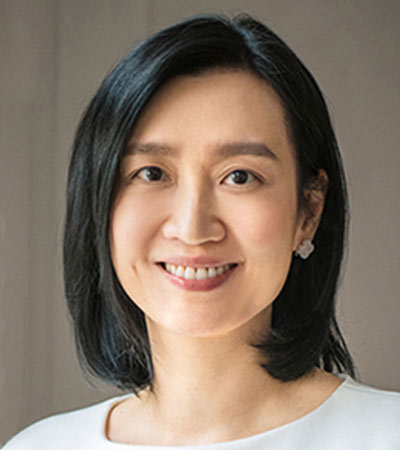
- Barbara Yu
- Citrin Foundation, Singapore and UK
- More info
-
Barbara Yu is the Co-founder and President of the Citrin Foundation, a research-driven, patient-centered nonprofit organisation dedicated to curing and supporting individuals with citrin deficiency, a rare metabolic disease and urea cycle disorder (UCD). She and her husband, Yen How Tai, established and have fully funded the Foundation since 2016, motivated by personal experience and a belief that progress in rare diseases requires long-term commitment, collaboration, and scientific excellence.
With a background spanning science-driven philanthropy, patient advocacy, and economics, Barbara adopts a holistic approach to the rare disease field that addresses both medical and systemic challenges.
The Foundation has built a global ecosystem to advance the understanding, diagnosis, and treatment of citrin deficiency, while supporting broader innovation in rare diseases. It funds and leads initiatives in basic science, translational research, therapeutic development, clinical studies, patient support, and community engagement, working with academic institutions, clinicians, researchers, biotech partners, and patients. A key strategic initiative is the establishment of the "UCD Translational Research Center Universität Zürich - Citrin Foundation" in 2025.
Outside of her philanthropic work, Barbara is the Co-founder and Co-CEO of YH2 Capital, a long-term investment firm managing proprietary capital that has consistently outperformed the market.
Previously, she was Partner and Head of Asia at Eton Park Capital Management and led the Principal Strategies Group at Goldman Sachs in Asia, overseeing the investment businesses at both firms. She began her career at Morgan Stanley in mergers, acquisitions, and restructurings.
Barbara holds a BA in Law with double first-class honours from Magdalene College, University of Cambridge, where she was awarded a full Jardine Scholarship.
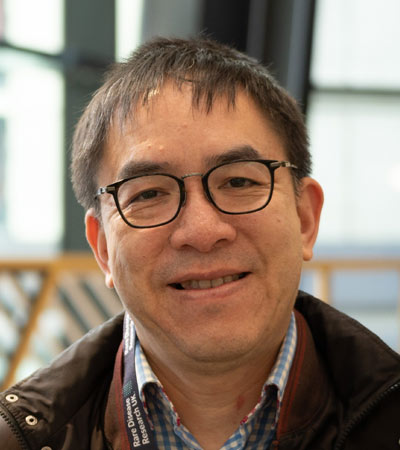
- Wyatt Yue
- Newcastle University, UK
- More info
-
Professor of Structural Biology, Newcastle University Biosciences Institute - 2021-current (www.staff.ncl.ac.uk/yuelab/)
Visiting Professor of Structural Biology, Nuffield Department of Medicine, University of Oxford 2022-2025
Director of Graduate Studies, Centre for Medicines Discovery, University of Oxford 2020-2022
Senior Scientist, PI & Associate Professor, Structural Genomics Consortium, University of Oxford: 2008-2021
Protein Crystallographer, Sareum Ltd, UK 2007-2008
Post-doctoral Fellow, Institute of Cancer Research, London 2003-2007
PhD in Crystallography, Birkbeck College, London 1999-2003
MBiochem (First Hon), University of Oxford 1995-1999
Esteem indicators
His team has determined 282 human crystal structures of 70 different metabolic enzymes in the Protein Data Bank.
He has supervised 14 graduate students to successful completion, and mentored 12 post-docs, 7 research technicians and 18 visiting students/scientists to research career in academia and industry.
He is currently Associate Editor of the journals Biochimie, Frontiers in Molecular Biosciences and Frontiers in Cell and Developmental Biology.
He is Deputy Lead for "Discovery of Medicine" theme at Faculty of Medical Sciences, sits in MRC Equipment, Diamond Light Source, Harrington Discovery Institute review panels, and is a member of Scientific and Medical Advisory Board of Adult Polyglucosan Body Disease Research Foundation.
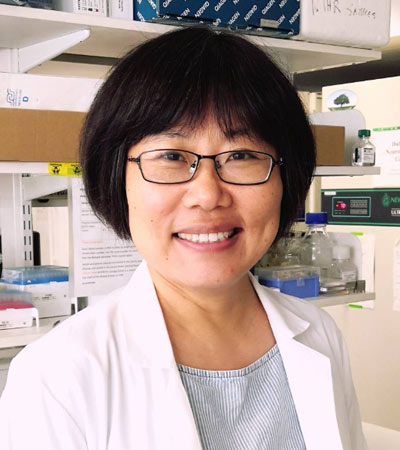
- Haiyan Zhou
- University College London, UK
- More info
-
Haiyan Zhou is a Professor of Genetic Medicine at University College London (UCL) and the UK Harrington Rare Disease Scholar. Her research focuses on the preclinical development and clinical translation of nucleic acid therapy (NAT) for rare genetic disorders. Professor Zhou serves as the deputy theme lead of the novel therapy theme in the NIHR Biomedical Research Centre at UCL Great Ormond Street Hospital (GOSH BRC) and leads the individualized RNA therapy program for paediatric rare diseases.
Professor Zhou is the Director of the UK Platform of Nucleic Acid Therapy (UPNAT) for rare disease, a specialist rare disease node supported by the UK Medical Research Council and NIHR. Professor Zhou is also the principal investigator in a series of research projects on the development of RNA therapeutics for a wide range of genetic diseases. Professor Zhou holds a MD PhD degree from Peking Union Medical College.
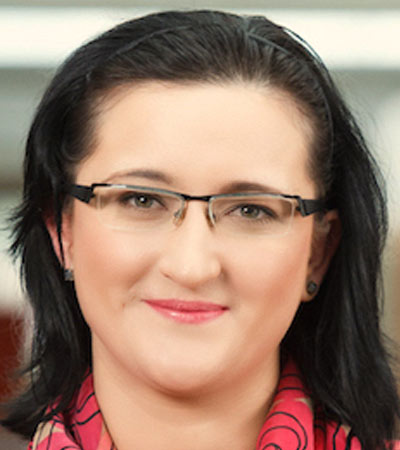
- Marinka Zitnik
- Harvard University, Harvard Medical School, USA
- More info
-
Marinka Zitnik (https://zitniklab.hms.harvard.edu) is an Associate Professor of Biomedical Informatics at Harvard Medical School, at Kempner Institute for the Study of Natural and Artificial Intelligence at Harvard University and at Broad Institute of MIT and Harvard. Zitnik investigates foundations of AI that contribute to the scientific understanding of medicine and therapeutic design, eventually enabling AI to learn and innovate on its own. Her research won best paper and research awards, including the Kavli Fellowship of the National Academy of Sciences, Kaneb Fellowship award at Harvard Medical School, NSF CAREER Award, awards from the International Society for Computational Biology, International Conference in Machine Learning, Bayer Early Excellence in Science, Amazon Faculty Research, Google Faculty Research, Roche Alliance with Distinguished Scientists, and Sanofi iDEA-iTECH Award. Zitnik founded Therapeutics Data Commons, a global open-science initiative to access and evaluate AI across stages of development and therapeutic modalities, and she served as the faculty lead of the AI4Science initiative.
